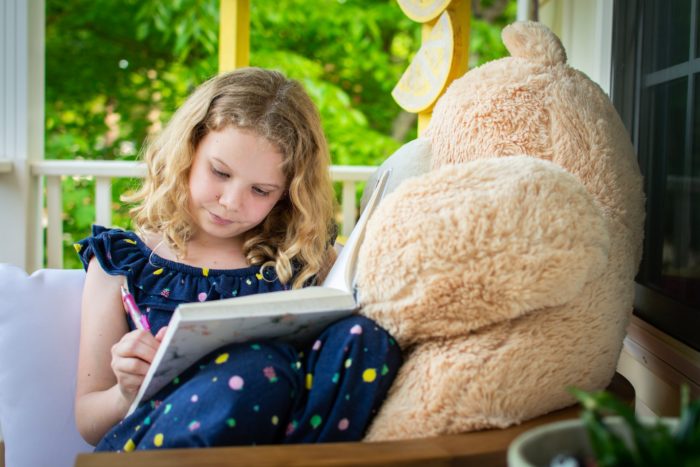Ways to Help Your Child Cope with Divorce
When a marriage is crumbling down, it weighs heavily on everybody concerned, especially on the younger generation. Children can take it very hard, and they need support to get through this tumultuous period. Here is some advice on how to give them comfort when divorce is imminent.
Look after yourself first
Children always need you to be there, especially if times are troubled. Since you will have to help them and go on helping them, you yourself must be in a decent condition. Separation and divorce proceedings can get you down, but you will cut a more collected figure if you learn how to deal with the pressure in a healthy style. First, your kids will observe and emulate you; second, they will take it better when you try to make them feel calmer because they know you can do it.
To achieve this, follow these well-known tips:
- stick to a healthy diet,
- exercise regularly,
- keep a feelings journal,
- stay social,
- practice mindfulness and gratitude,
- join a support group,
- seek professional support when necessary.
Let them know you love them
Though it is a basic truth that you love your kids and they love you – how often is it said out loud? It is always a meaningful statement, but at this time, it can be more powerful still. Don’t forget about strengthening words with real closeness, touching, embracing, and adjusting stray hair – this kind of contact goes a long way with kids. Let them know your love for them remains the same. You love taking care of them, and spending time with them.
Reassure your child that it’s going to be ok
Among the things that need to be said to register them in the children’s minds is the idea that, in spite of the changes within the family, the caring parent-child relationship will stay the same.
Although there are going to be difficulties in some aspects of life, things will get sorted out eventually. The children should be aware that you are sure of the future and it will give them a feeling of certainty as well.
Hear your child out about their feelings on the matter
Your children should know they are heard. Let them step out into the open and voice their feelings. Expect this kind of conversation until the divorce is over and done with. They may harbor various negative feelings like bitterness, fretting, apprehension – they are bound to pass. Also, tell them straightforwardly that divorce is not due to any fault of theirs.
Consider the age
You ought to know how much information your kid(s) may need – older children will certainly want a more detailed explanation, complete with reasons and predictions.
Don’t slip into laying the blame
When discussing the issue, you certainly need to be open and frank but forbear from voicing criticism. It can be very difficult because, assumedly, some events qualified for censure, yet talks with children are not the best opportunity for distributing guilt.
Bring others into the picture
There must be caring and friendly adults around who know what is going on. They could be asked to join the discussion with the kids – or even present them their version of the proceedings. It could make your task more manageable as well as let the child(ren) know support can be coming from several sides.
Never quarrel before your children
If you and your spouse are still engrossed in bitter disputes, like about money or trustworthiness, personally or via phone, make sure the children are not there to overhear you. Psychologists aver that children who witness parental fiery disputes are maladjusted to family changes. Take pains to exclude them from grown-up quarreling.
Maintain interest in your child and their life
Children are bound to feel neglected when their parents don’t give them enough time. Naturally, the little ones want their parents to get involved in their lives. Tell the child(ren) that you love them and allot time to talk and play with them or to go out somewhere together.
Agree with the other parent on kid treatment
A lot of loud arguments – especially when the kids are mentioned – can end up in the little ones becoming sure they are to blame. Then they might develop depression. Make a pact to never quarrel before your kids, never send any information to your ex-partner through them, and never involve them in arguments that may leave bad feelings and disconcert the little ones.
Allow your child to contact and socialize with the other parent
Encourage your child to spend time with your ex-partner. Should your ex-partner enter into another relationship, why won’t your child establish a good relationship with their new partner – it will be beneficial for them.
Avoid berating the other parent to children
When one parent keeps describing the other in vicious terms, the child feels as if they were expected to agree – and that will mean taking sides even if they don’t want to. Please don’t make them do it.
Be honest though they are little
There are many good reasons why it is better to be honest about this painful affair with the kids. Yet it would help if you began by thinking hard about what information to give them and how to phrase it – it should be made simpler and easier to sink in. Talk about the forthcoming changes in the kid’s life – everyday living, school arrangements, home, whatever can be relevant.
Try not to interfere with routine
If you manage to maintain consistency at home, the child will have a warm feeling of partial stability while they may feel troubled about what is occurring. It’s worth your while to maintain whatever you can, including the kid’s chores, discipline, and homework.
See if counseling could be advisable
Even if they don’t show it, kids can be overcome by the turn of events. They may even need to be professionally assisted and reassured to regain their composure and get on in their normal fashion. Timely healing can ensure their unclouded future.




